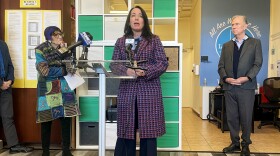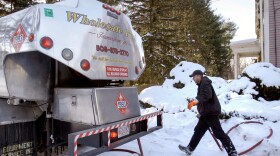Witness the struggle of those fighting for change in our state’s current housing crisis.
Telling the Story of Housing in Connecticut.
How are we doing?
-
Anecdotally more than 140 people in Connecticut have died outdoors in 2025. But it can be difficult to get accurate numbers for deaths of unhoused residents.
-
The former University of Connecticut campus in West Hartford is undergoing a major redevelopment after sitting dormant for years. It's one of 16 sites that'll be remediated and given new life.
-
New affordable homeownership opportunities in Hartford may be ready within a year. The city’s Vacant Lot Task Force has identified 20 blighted properties to be fixed up by local developers.
-
Federal funding changes to homelessness services has Connecticut stepping up to fill the gaps with more than $5 million in state dollars.
-
Connecticut’s inspector general released details about the decomposing body, identified as Carmine Boccuzzi, found in a Stamford home and the motivation behind a deadly standoff last week.
-
Connecticut is navigating changes surrounding the federal Low Income Home Energy Assistance Program, or LIHEAP, after federal workers with the program were laid off last spring. The program's funding was also delayed due to the government shutdown.
-
An unidentified decomposing body was found on the second floor. The homeowner was facing foreclosure and eviction at the time of the shooting. The homeowner wore camo with Nazi insignia during the incident.
-
Hartford is touting the success of its housing task force, created to address problem landlords. Wednesday Hartford's mayor shared a compiled list of other landlords accused of being neglectful with their properties.
-
A lawsuit claims Zillow is deceptive in its selling practices, urging buyers into Zillow Home Loans and higher sales. A Norwalk homebuyer is among the plaintiffs.
-
A community may be considered a rental desert when less than 20% of the available housing are rental properties, and it’s a statewide problem.
-
Connecticut is set to lose about $90 million in federal homelessness funding and the state is ready to commit local dollars to fill the gap.
-
State lawmakers faced a lot of pressure to respond to federal cuts and a housing mandate from the governor during Connecticut’s recent two-day special session. How did they respond?













